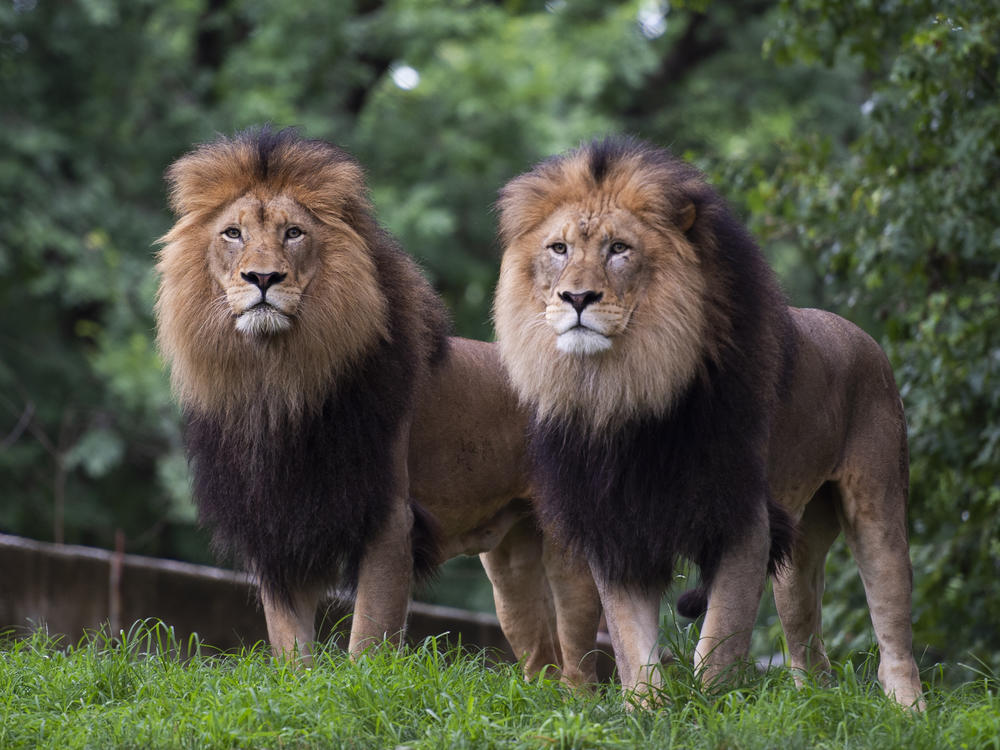Section Branding
Header Content
9 Lions And Tigers At The National Zoo Are Being Treated For COVID
Primary Content
Humans aren't the only ones who have to worry about COVID-19. A number of lions and tigers at the Smithsonian's National Zoo in Washington, D.C., are now being treated for the virus.
Six African lions, a Sumatran tiger and two Amur tigers have tested presumptive positive for the virus that causes COVID-19 and are undergoing treatment, the zoo said in a news release Thursday.
Zookeepers first noticed last week that the animals were displaying symptoms including decreased energy and appetite and coughing and sneezing. The animals are now being treated with anti-inflammatories, anti-nausea medication and antibiotics, the latter of which is intended to address a likely secondary bacterial pneumonia, the zoo said.
The affected animals are not required to quarantine, and the public is not at risk due to the general lack of access zoo visitors have to animals in their enclosures, the zoo said.
How the big cats contracted the virus is unclear. The zoo said its investigation did not yield answers as to how the virus may have spread to the animals, but it noted that all staff who may have had contact with the animals are required to wear a mask indoors.
The Centers for Disease Control and Prevention has said that it is possible for humans to transmit the virus to animals through close contact, but the risk of animals spreading the virus to humans is low.
The National Zoo isn't the only facility dealing with sick animals. At Zoo Atlanta, 18 out of 20 western lowland gorillas have contracted COVID-19, likely from an asymptomatic zoo worker. Like the big cats at the National Zoo, the gorillas displayed symptoms including decreased appetite and coughing.
Zoos, however, are fighting back. Seventy zoos and other animal conservation sites have received donations of the COVID-19 vaccine to administer to some of their animals, The Washington Post reported.
Copyright 2021 NPR. To see more, visit https://www.npr.org.

